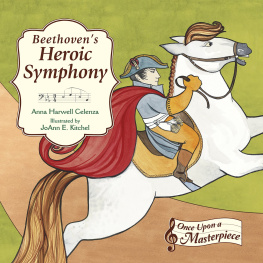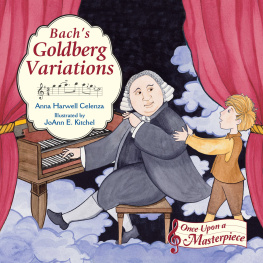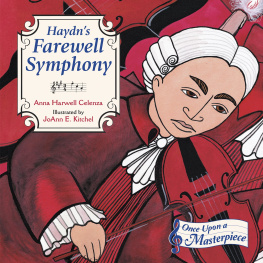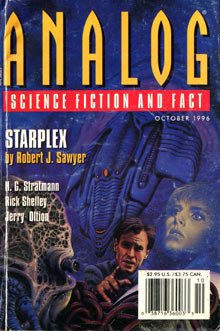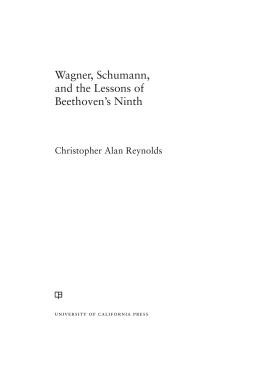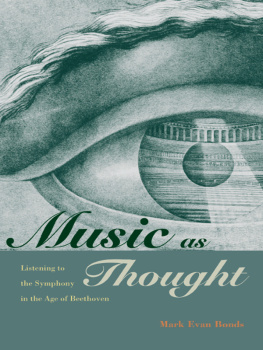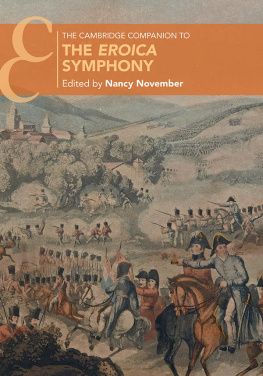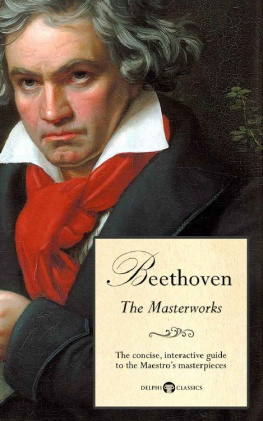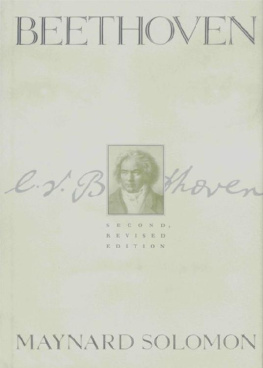
Beethovens
Heroic
Symphony
Anna Harwell Celenza
Illustrated by
JoAnn E. Kitchel


2016 Once Upon a Masterpiece edition
Text copyright 2004 by Anna Harwell Celenza
Illustrations copyright 2004 by JoAnn E. Kitchel
All rights reserved, including the right of reproduction in whole or in part in any form.
Charlesbridge and colophon are registered trademarks of Charlesbridge Publishing, Inc.
Published by Charlesbridge
85 Main Street, Watertown, MA 02472
(617) 926-0329
www.charlesbridge.com
Library of Congress Cataloging-in-Publication Data
Celenza, Anna Harwell.
Beethoven's Heroic symphony / by Anna Harwell Celenza;
illustrated by JoAnn Kitchel.New Once upon a masterpiece series edition.
pages cm.(Once upon a masterpiece series)
Originally published in a slightly different form in 2004 under title: The heroic symphony.
Summary: After learning that he is going deaf, Beethoven is determined to write
a great symphony using the heroic deeds of Napoleon as his initial inspiration.
ISBN 978-1-58089-530-9 (reinforced for library use)ISBN
978-1-63289-507-3 (ebook)ISBN 978-1-63289-508-0 (ebook pdf)
1. Beethoven, Ludwig van, 1770-1827Juvenile f iction. [1. Beethoven,
Ludwig van, 1770-1827Fiction. 2. ComposersFiction.]
I. Kitchel, JoAnn E., illustrator. II. Title. III. Title: Heroic symphony.
PZ7.C314Be 2016
[E]dc23 2015026870
Printed in China
(hc) 10 9 8 7 6 5 4 3 2 1
Illustrations done in watercolor and ink on Arches cold press paper
Display type and text type set in Giovanni and Della Robbia
Color separations by Imago in Singapore
Printed by C&C Offset Printing Co. Ltd. in Shenzhen, Guangdong, China
Production supervision by Brian G. Walker
Designed by Diane M. Earley
Synched Read-Along Version by:
Triangle Interactive LLC
PO Box 573
Prior Lake, MN 55372
ISBN-13: 978-1-68444-715-2 (e-book)

To Chris and the Countmy greatest sources of inspiration.
A. H. C.
For Lily.
J. E. K.
Visit Annas Music Spot at www.charlesbridge.com/AnnasMusicSpot
to listen to Beethovens Heroic Symphony.

n a glimmering salon, Ludwig van
Beethoven played the piano. The audience
sat mesmerized. Never had they heard
music performed with such emotion and
strength. As Ludwig glanced at them, he felt
extremely proud. He was the best pianist in
Vienna, perhaps the best in all of Europe.
Ludwig wrote music that showcased his
talent, and when he played, women
swooned and men cheered. The wealthy
paid him large sums of money to perform in
their homes.
It seemed he had everything: talent, fame,
money. No one suspected that the great
Ludwig van Beethoven also had a troubling
secret he was slowly going deaf. It was
getting more and more difficult for him to
play the piano. Without his hearing his
career, fame, and fortune would soon come
to an end.


Ludwig searched in secret for a treatment
that would restore his hearing, but without
success. Then a doctor in Heiligenstadt
promised he could help. Filled with hope,
Ludwig left Vienna in the spring of 1802 to
stay at the remote clinic.
In Heiligenstadt, Ludwig did everything
the doctor recommended. He ate a special
diet, exercised regularly, and rested his ears
by staying away from concerts and avoiding
long conversations. As the months passed,
however, his hearing only grew worse.
Finally, in October, the doctor delivered the
dreaded news the treatment was a failure.
Ludwig was going deaf, and his career as a
pianist was over.
No! cried Ludwig. It cant be true!
Anger welled up inside him. He stood up
without saying another word and ran out
the door.


Ludwig walked for hours, through the
woods, along the river. He tried to make
sense of the horrible news, but the same
thought kept running through his mind:
Without performing, without my music,
what reason is there to live? Sorrow and
fear crept into his heart.
In his room Ludwig began writing a
farewell letter to his brothers. He tried to
explain the horror of his situation, but
f inding the right words was difficult. As he
sat at his desk, a sorrowful melody f illed his
imagination. Ludwig listened to the tune
it expressed his thoughts and emotions in
a way words could not. And while he
listened, something happened: Ludwigs
will to live grew stronger.
My ears might be failing, but music has
not abandoned me, he thought. If I can
imagine music then I can write it! I will be
a composer as great a composer as I was a
pianist! Filled with renewed hope, Ludwig
packed his bags and returned to Vienna.


Ludwig visited all his old friends. He
had left the city without saying good-bye,
and many wondered where he had been.
Now, one by one, each learned of Ludwigs

